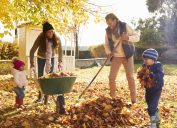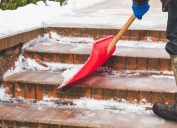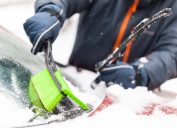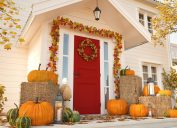17 Home Maintenance Tasks Everyone Should Do Before It Snows
From maintaining heating costs to dusting off your snow blower, this is how to prepare for snow.
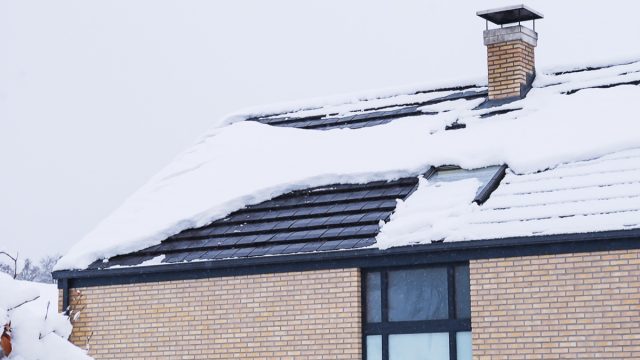
Snow may be pretty when it's falling on the ground, but when it comes to your home, a winter wonderland can actually cause a lot of damage if you're not prepared. From the ice that comes with it to the water it leaves behind, there are plenty of opportunities for snow to wreak havoc on your home this winter. To help you get ready for the cold weather, we've talked to the experts to see what winter home maintenance tasks absolutely need to be done before the first big snowfall of the season.
1
Get your snow blower ready.
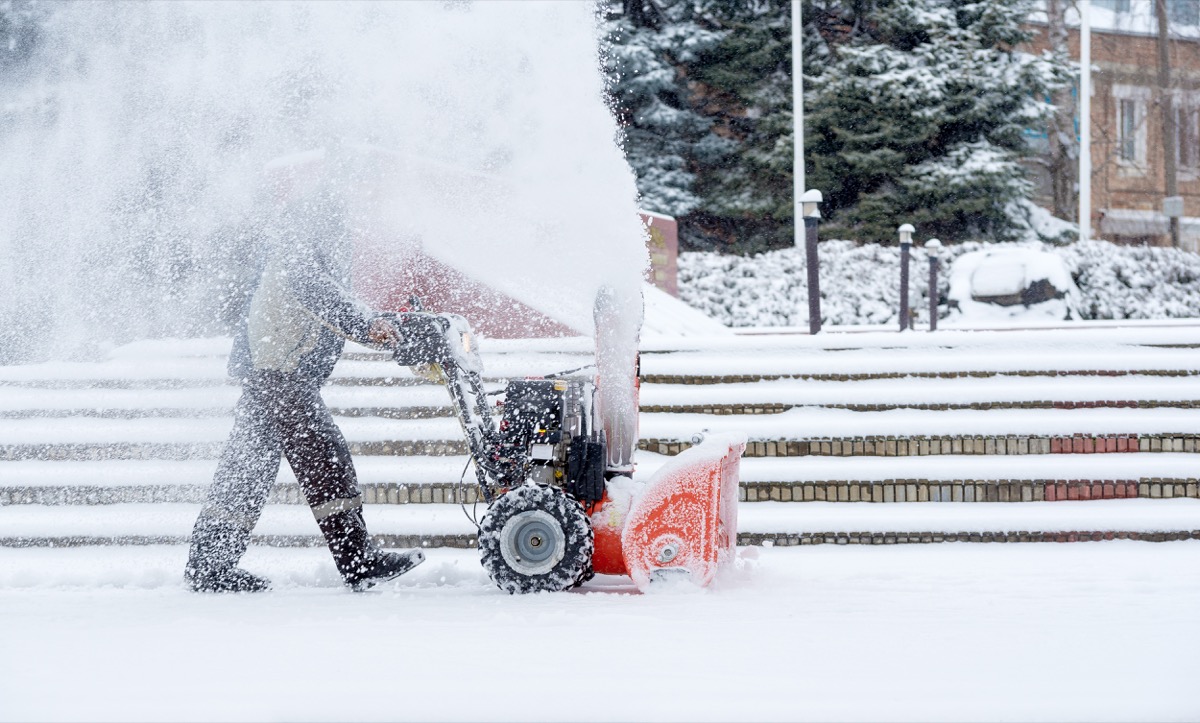
Picture this: The first snow creeps up on you sooner than expected, and you wake up to a completely covered yard. The one thing you'll wish you had ready before then is your snow blower.
"Snow has already made an appearance in various areas across the U.S., which means [you should have] your snow blower winter ready," according to the pros over at STA-BIL, a company that specializes in making storage fuel stabilizer. "A few easy things you can do to keep your snow blower ready to tackle the winter flurries include checking your spark plug ever year, acclimating your machine to outside temperatures for at least five to ten minutes before starting, and also using a fuel system additive to discourage phase separation and ensure the functionality of your snow blower throughout the season."
2
Prepare your driveway.
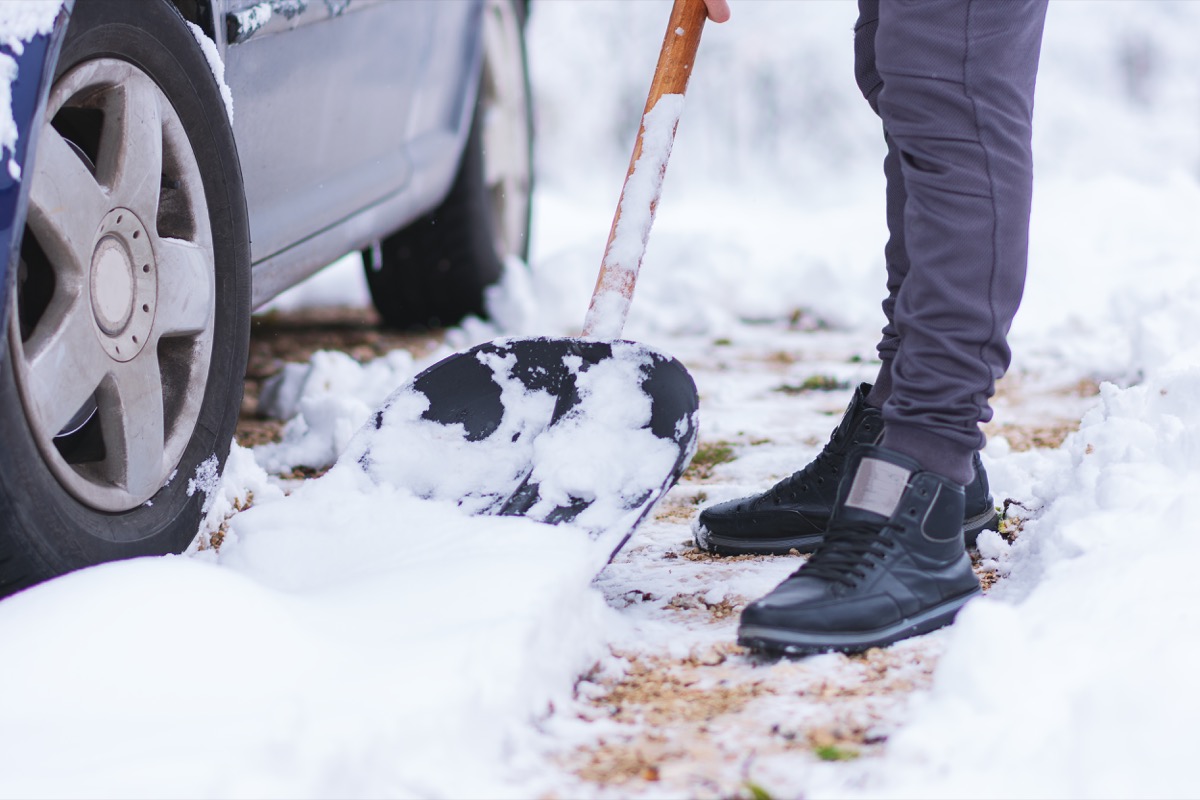
During the winter months, you still often have to go to work or take the kids to school. Winter break doesn't last forever, and during these times, you need to be able to brace for snow. Paul O'Connor, CEO of Pickle Home, recommends homeowners make sure their "shovels are in good working order," and they have "a solid supply of rock salt on hand." Sprinkling this salt on your driveway and walkways before any snow falls can help stop snow from sticking to these areas—and a good working shovel will finish the job for anything that managed to make it through.
3
Fertilize your lawn.
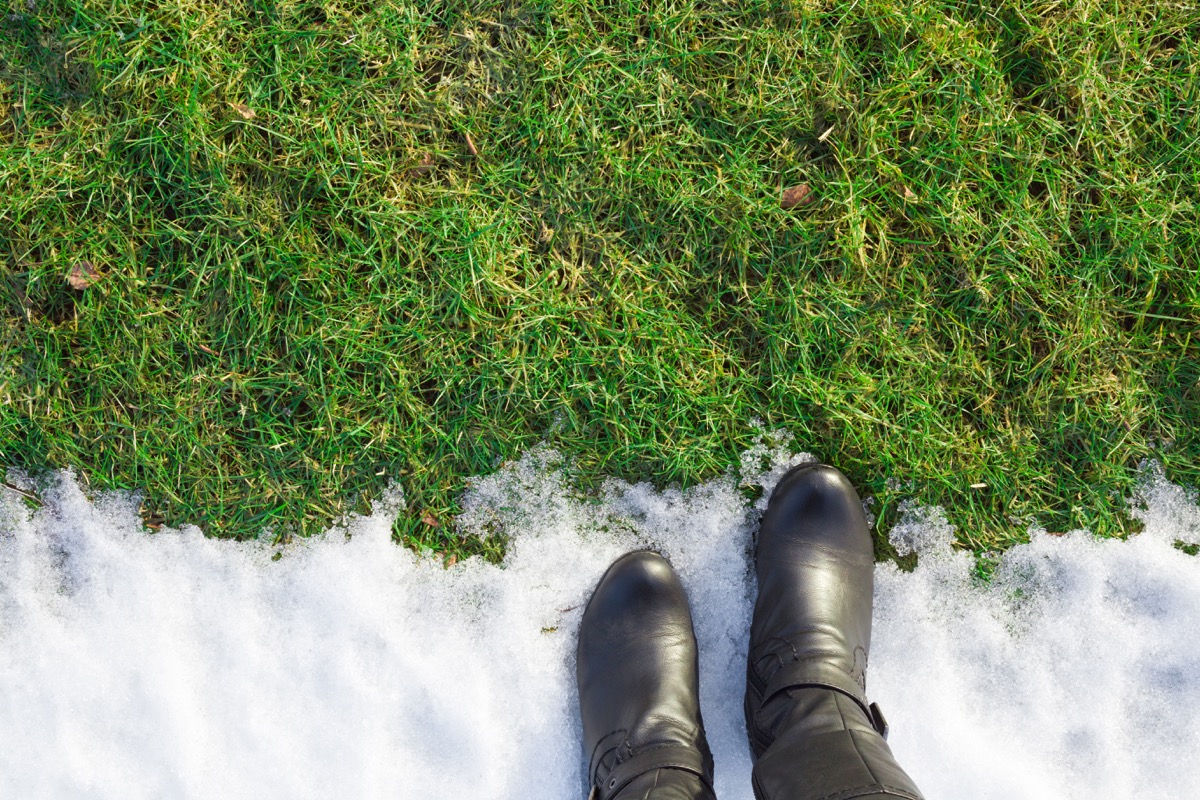
Winter home maintenance outside of your home is just as important as the work you do inside. According to Phil Dwyer, turf grass scientist for ScottsMiracle-Gro, the time before the first snowfall is optimal for fertilizing your lawn.
"Not only does fertilizing your lawn in the fall contribute to both the health and good looks of your lawn, but fall is also the ideal time to give your lawn the nutrients it needs for a better lawn now and next spring, because fall is peak time for your lawn to begin storing nutrients and growing lots of strong roots," he says. "Fall lawn fertilizer will help rejuvenate and repair your lawn, give roots a pre-winter nutrient boost, and make for a strong start to spring with a greener lawn."
4
Properly store your outdoor equipment.
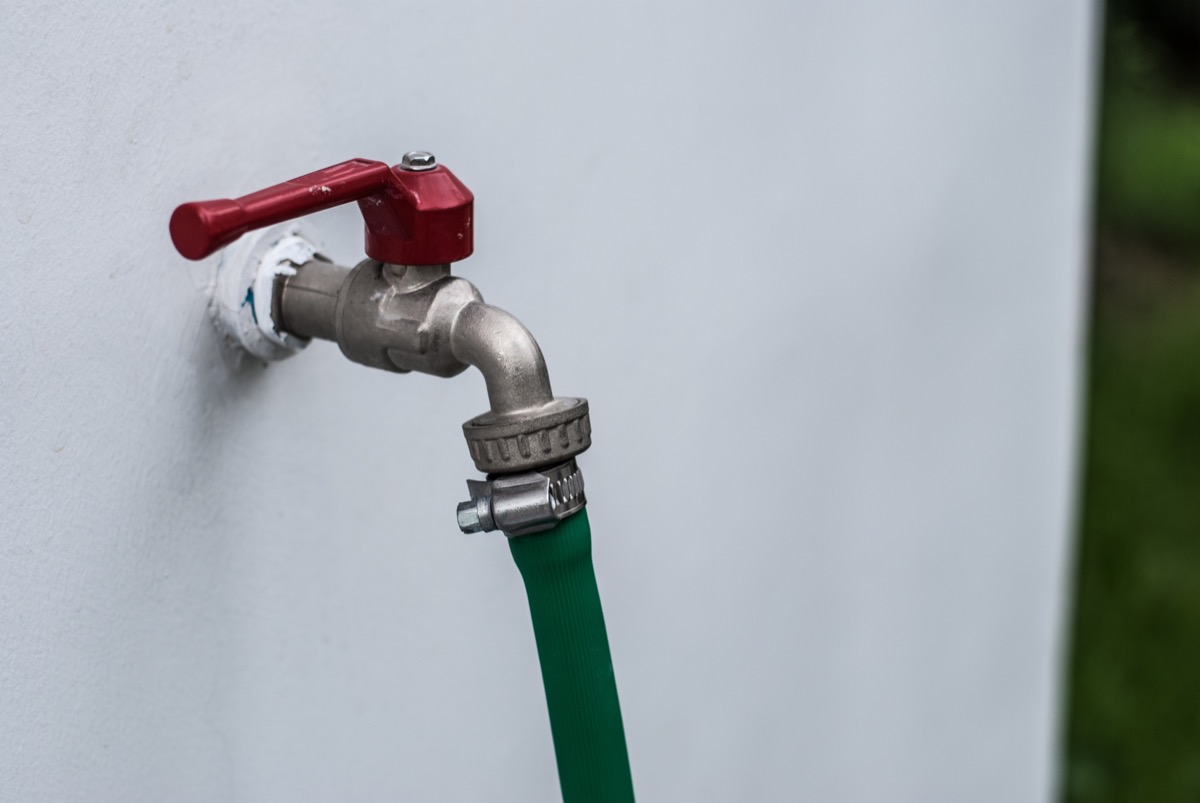
When the snow comes, we often retire much of our outdoor equipment until spring comes back around. But if we don't properly store these things through the winter, they become practically unusable by spring. Jennifer Sutton, founder of What If Wellness, says that she "learned the hard way" that you should unhook your outdoor hoses before the temperature drops. Otherwise you might end up like her, with a flooded basement due to water that froze inside the pipe and made it burst.
5
As well as your outdoor power tools.
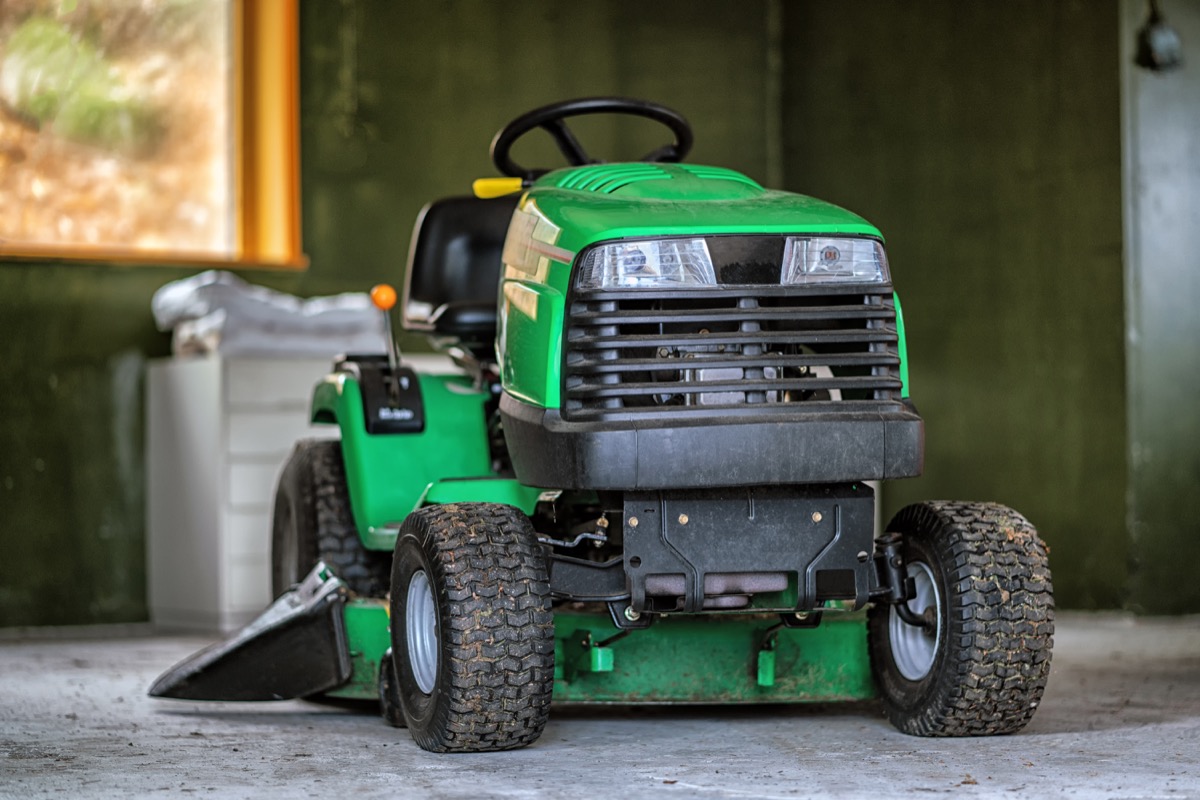
Properly storing your outdoor equipment doesn't stop at your hoses. The pros at STA-BIL also say it's extremely important to store your power tools in your garage or shed so you can avoid "running into maintenance issues and costs" in the spring.
"You should consider freeing all debris and buildup from your outdoor power equipment before retiring your favorite tools for the season," they say. "Cleaning out grass and mud, and sharpening your tools helps for a smooth transition back into the spring and diminishes any chance of losing cutting performance on your tools. Dull blades and buildup can make for an even more tiresome experience next season."
6
Put insulation on exterior outlets.
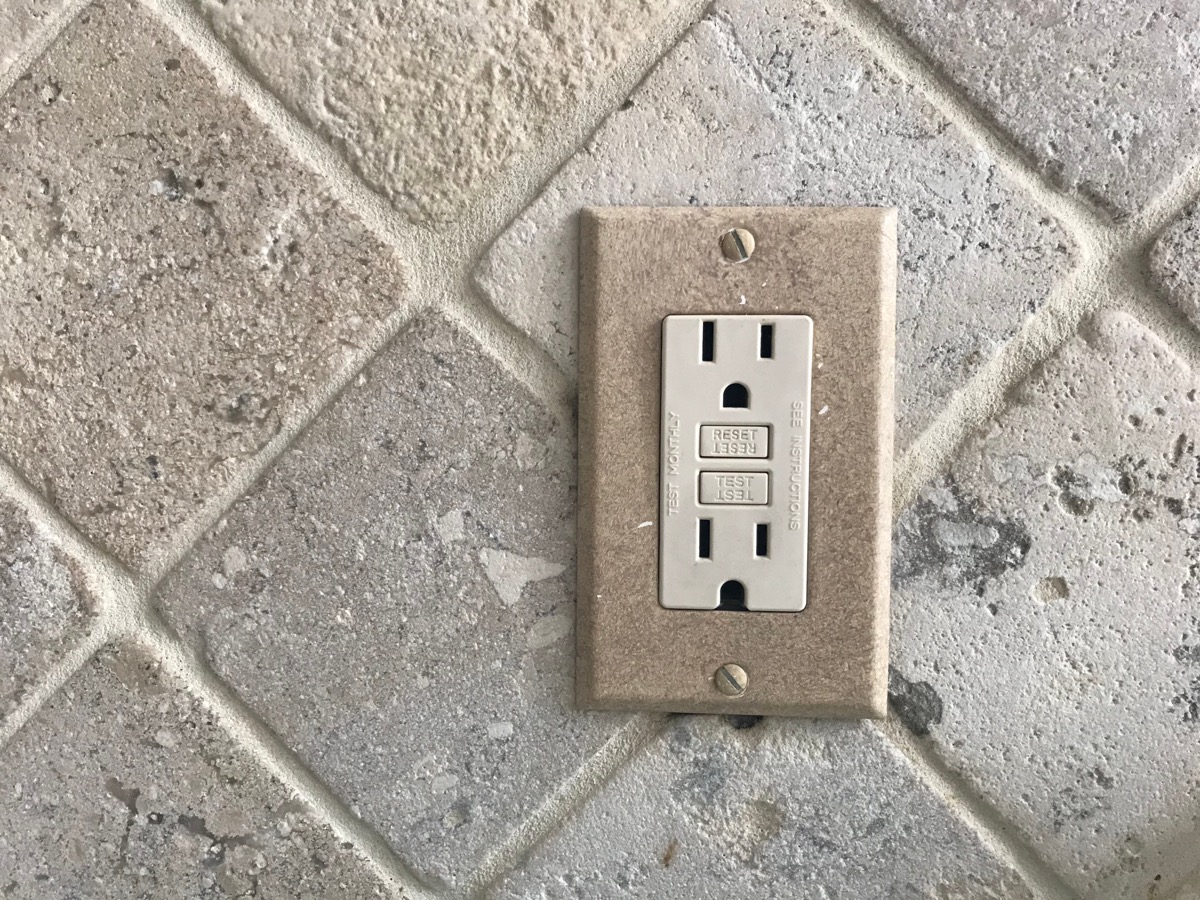
Cold air can creep into your house in a number of different ways this winter—including ways you may not have realized. According to Wendy Gonzalez, a veteran interior designer, you should be watching out for the outlets on your exterior walls. If not insulated properly, which is common in older homes, electrical outlets and light switch boxes on these walls can allow cold air to seep in practically undetected. Gonzalez says her go-to winter prep hack is to put insulation on all of these outlets, which she finds "really helps to reduce the drafts filtering in."
7
Switch your ceiling fan.
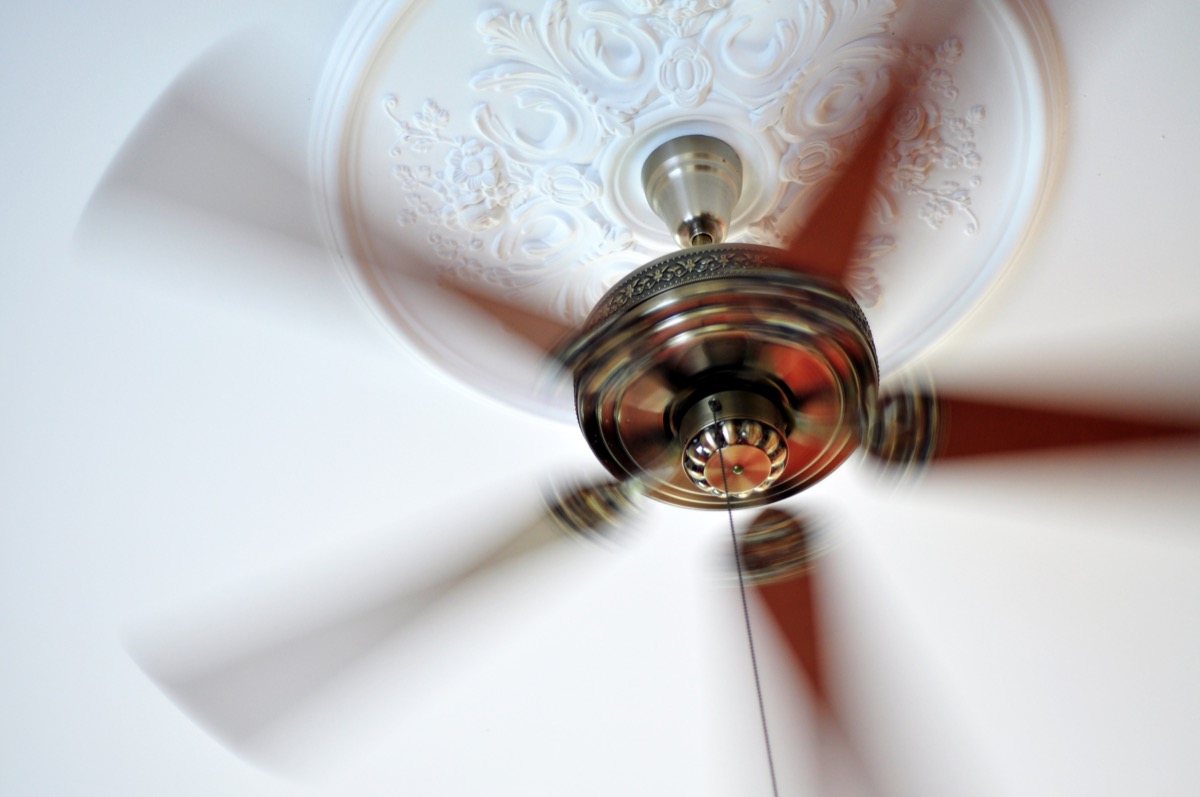
The major goal of most homeowners is to heat up their homes in the winter without raising their heating costs exponentially. Many homeowners may not realize that they can use their ceiling fan to do just that.
"A little known trick is to reverse the spin of your fan," says Noah Myint, a partner with Vogue Homes. If you turn your blades to spin clockwise (rather than counterclockwise like in the summer), you'll be "pushing warm air down, instead of pulling warm air up." And this, in turn, will help warm up your home so you don't have to run your expensive heater as much.
8
Optimize your lighting.
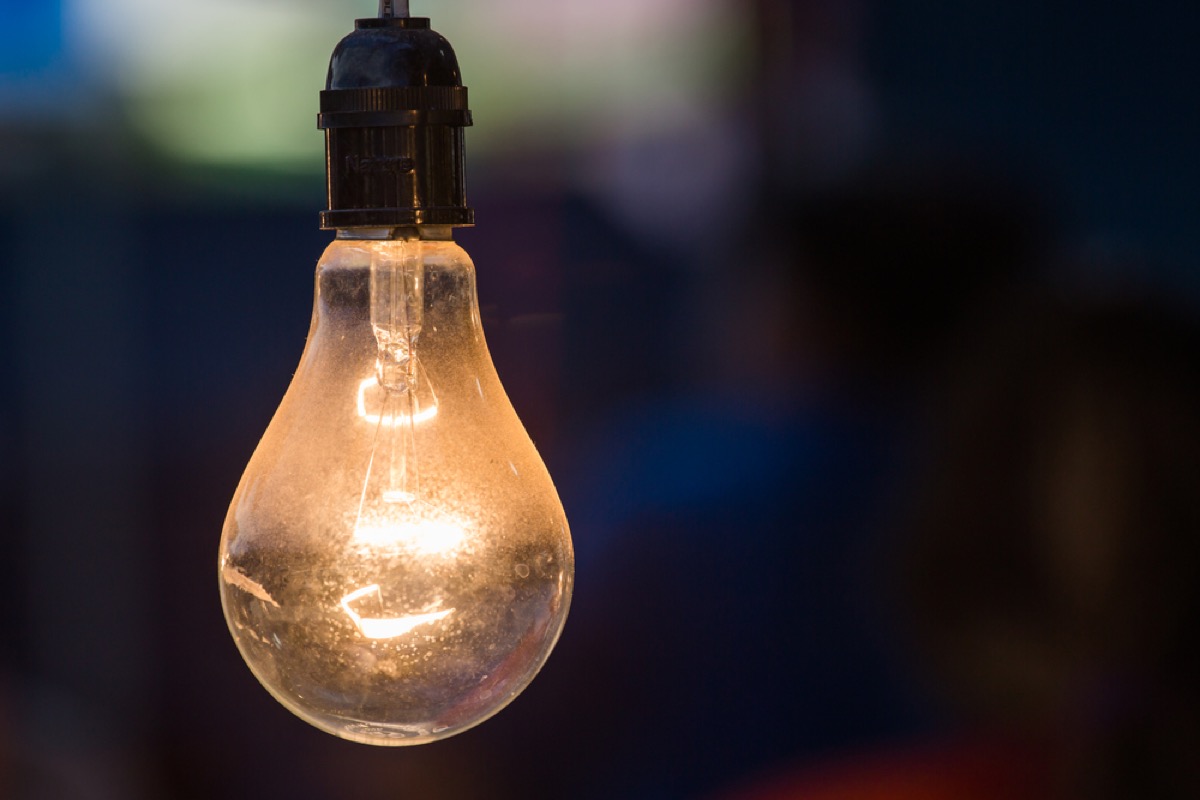
With limited sunlight during the winter, we face real danger if we're walking around our house without optimal lighting. Richelle Della, co-founder of Housing Joint Venture, suggests that her clients "light up dark areas around [their] house with dawn to dusk lights" which will leave them "feeling more safe and secure" during these months. This will also help prevent any slips or falls on the incoming snow and ice, which could cause major injuries.
9
Talk to a professional about surge protection.
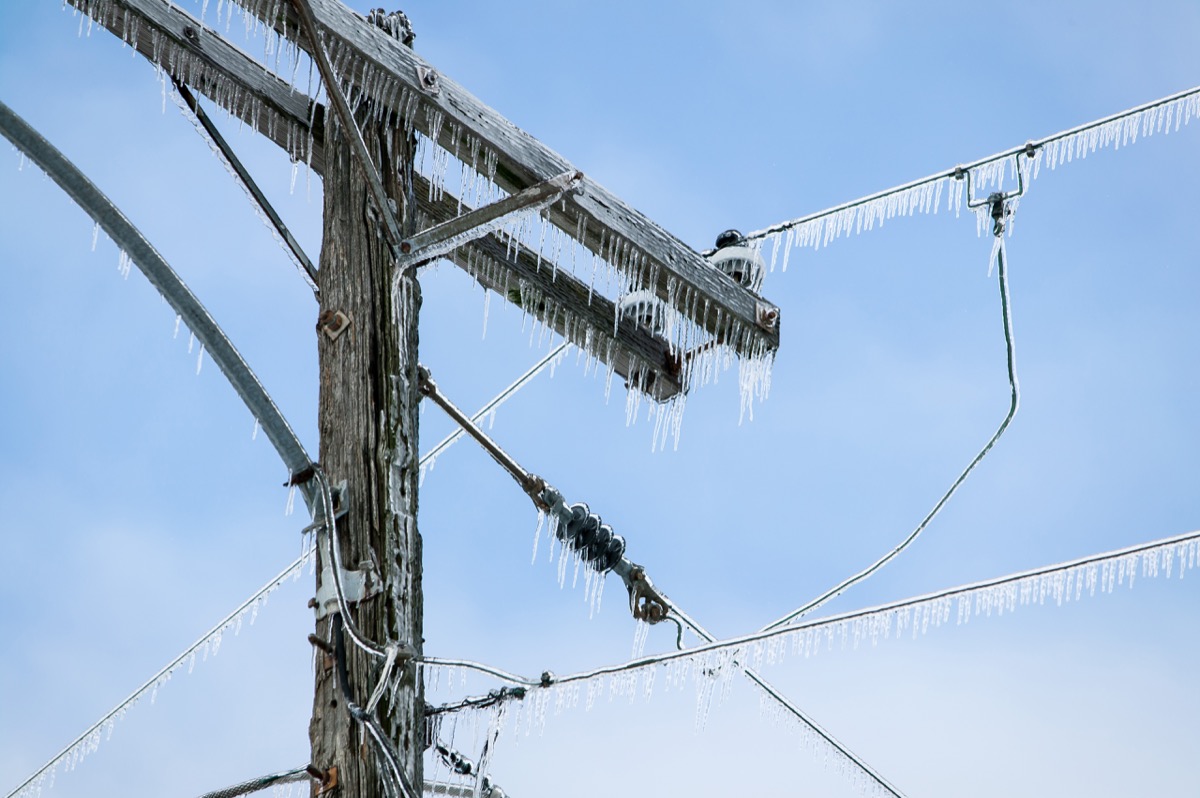
The number one cause of U.S. power outages is severe weather, according to the National Oceanic and Atmospheric Administration. And severe weather is all-too-common in the winter, with the possibility of snow and ice storms. The pros at One Hour Heating & Air Conditioning recommend meeting with a professional before winter arrives to implement surge protection in your home, noting that "a whole house surge protector can prevent your electronic appliances from that next lighting strike or downed power line." And, as we all know, snow storms have the ability to take down many a power line.
10
Check your electrical system.
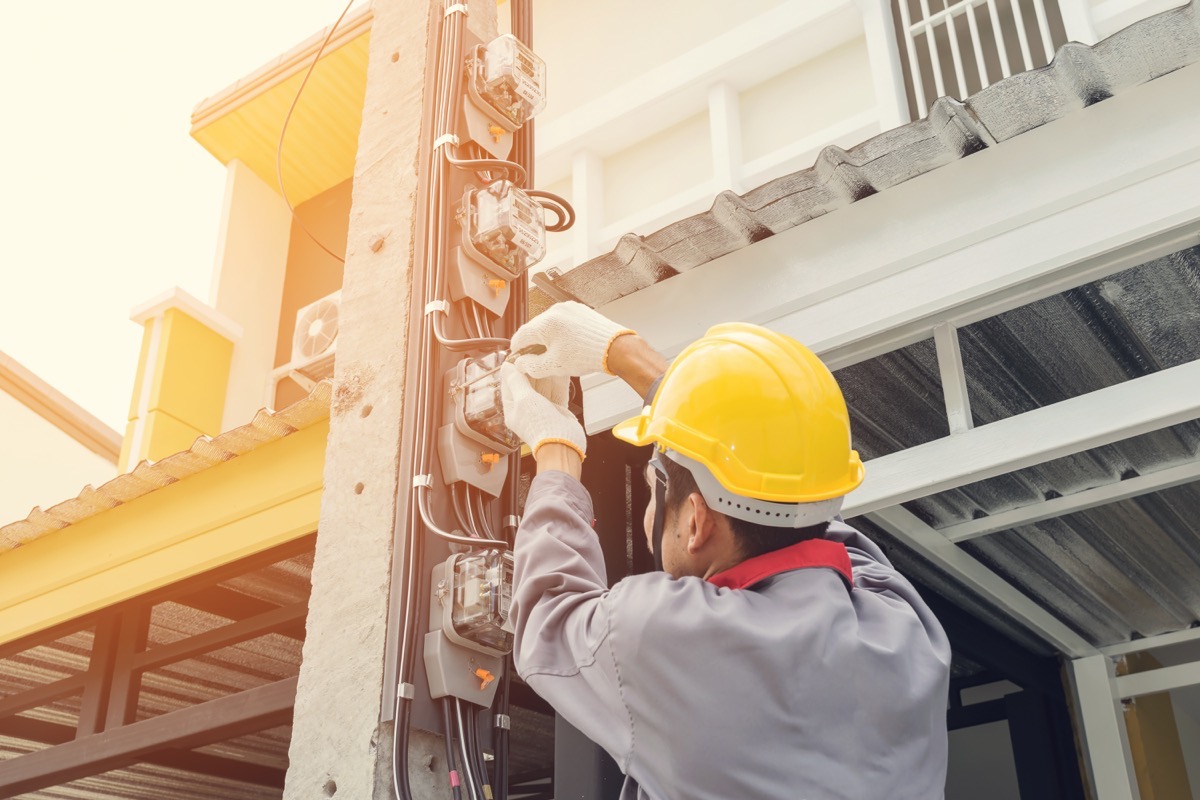
While a power outage can damage any electrical system without surge protection, you'll also just want to check your electrical system for any general problems that could arise.
"Winter months are cold, and it stays dark for a longer time," says Matt Worthy, owner of Worthy Inspection Services, LLC. "Electric system and power failures are certainly unwanted situations. So one should check the main panel for loose connection and find wires that have bad insulation. Also, check electrical sockets and extension cords along with the heating systems."
11
Install a flood sensor.
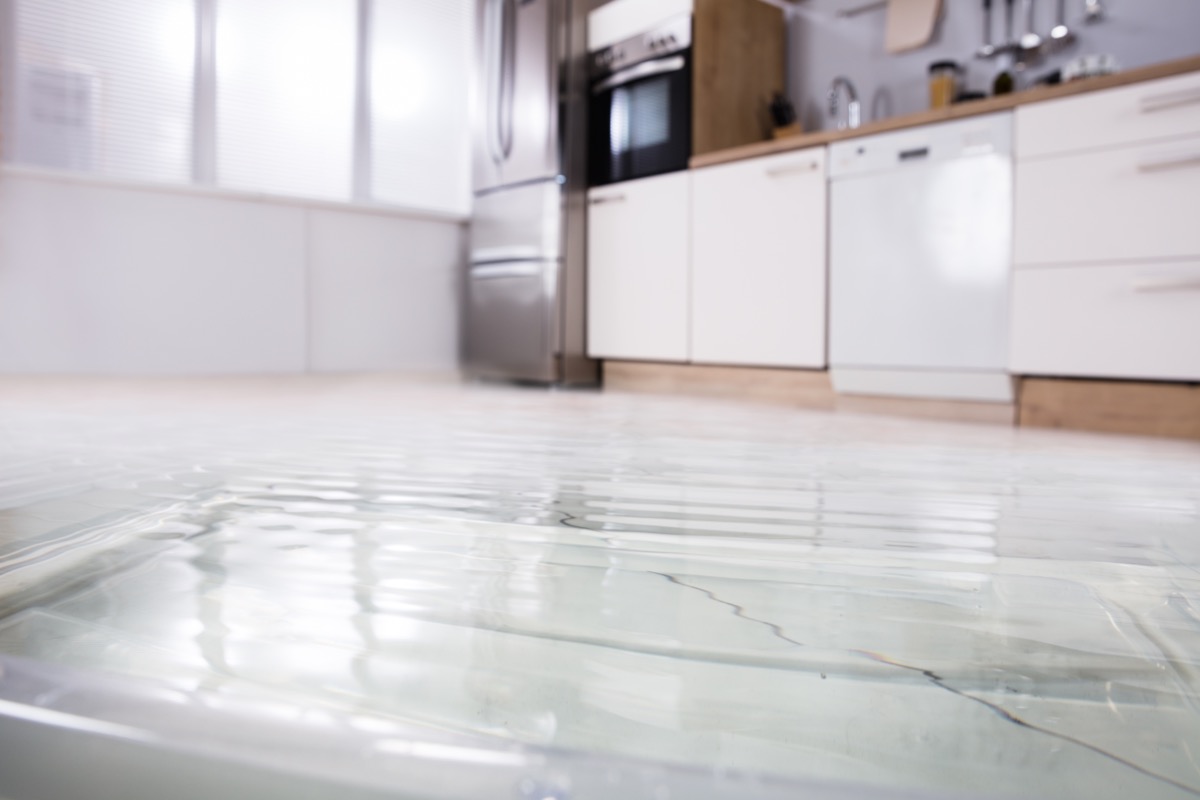
Flooding in your home is never ideal, but it's especially unwanted in the winter months when you're using your home as a refuge from the freezing elements outside. And with snow and ice, flooding is very possible.
"The winter months can leave your home more susceptible to flooding, so it's smart to take some preventive measures," says Laura Schmitz, a home security specialist for Frontpoint. "Installing a flood sensor or two in the basement and nearby sinks, toilets, and tubs will make sure you're alerted anytime excess water starts to gather in your home."
12
Invest in a smart thermostat.
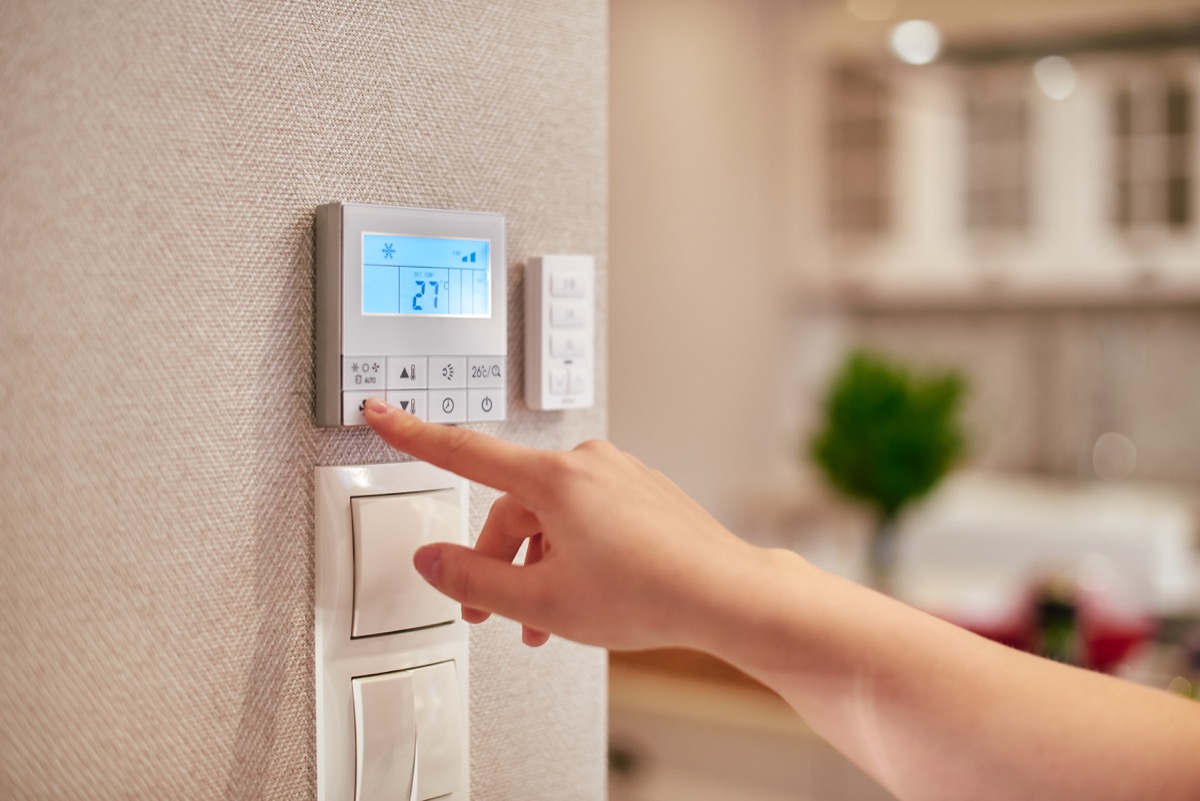
Schmitz also recommends that homeowners invest in a smart thermostat before the winter rolls in. "A smart thermostat helps homeowners and renters save on energy costs during the more extreme winter weather." This is because many smart thermostats automatically enter an energy-saving mode when no one is home, and they also allow "you to create heating schedules, control your home temperature remotely, and maintain energy-efficient temperatures at home."
13
Clean your air ducts.
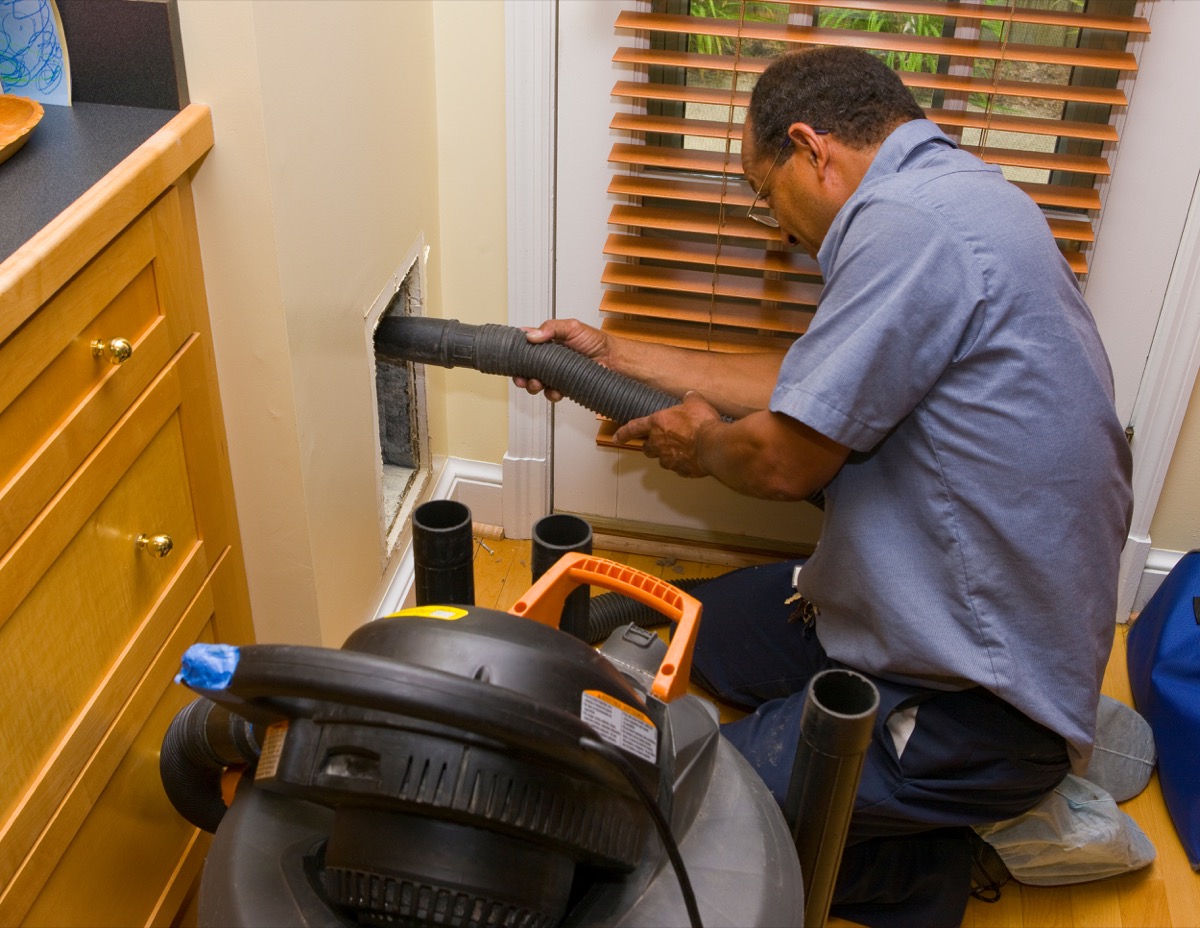
Greg Antonioli, president of FirstCall Residential, warns homeowners that "mold and mildew tend to build [up in air ducts] during the humid summer months when there might be condensation in the cooling system." So, as the summer months end and colder days start rolling in, it's important to clean your air ducts. You'll be using your air ducts often during the winter when your heating system blows, and it's unsafe to have any mold and mildew flowing into your air.
14
Check your carbon monoxide detector.
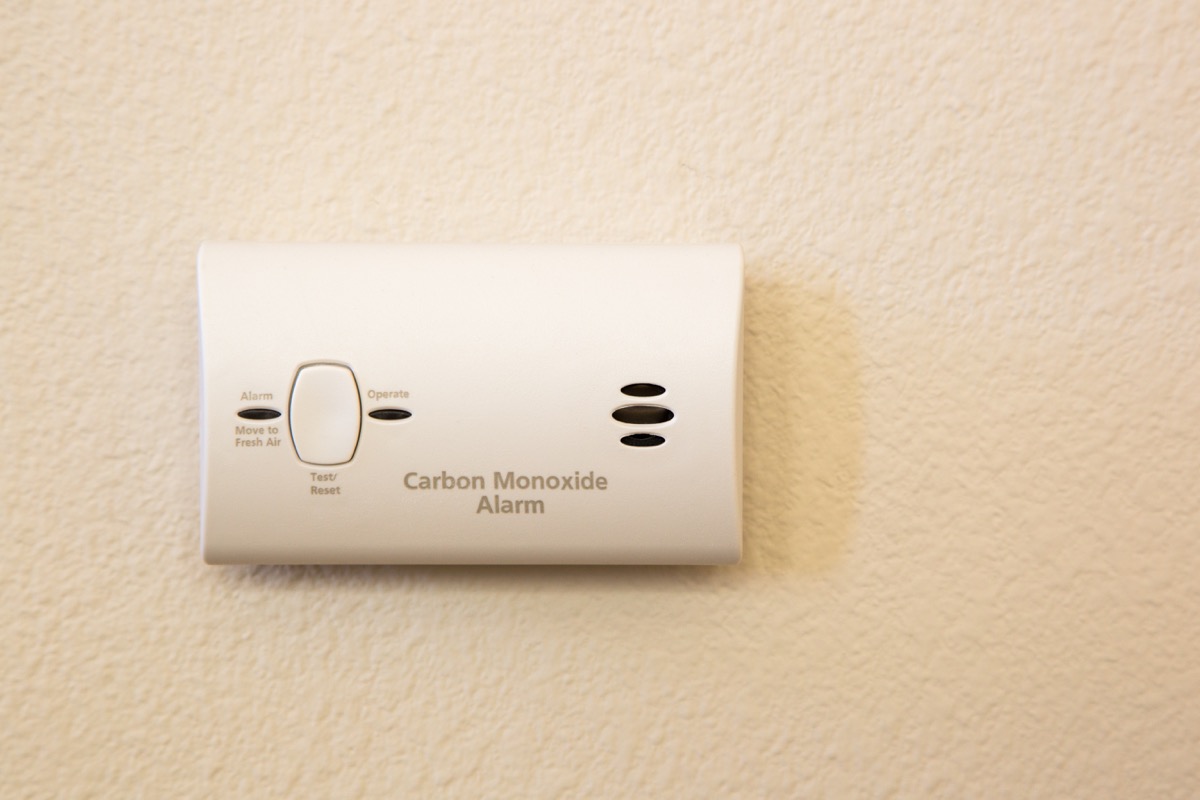
"Since you'll likely open the windows less during the winter and use a bit more natural gas, make sure your home's air stays clean with a carbon monoxide detector," Schmitz says. If you already have a carbon monoxide detector, run routine tests in order to make sure it's properly running before winter. And if you've had yours for a while, consider replacing it.
15
Patch up any holes.
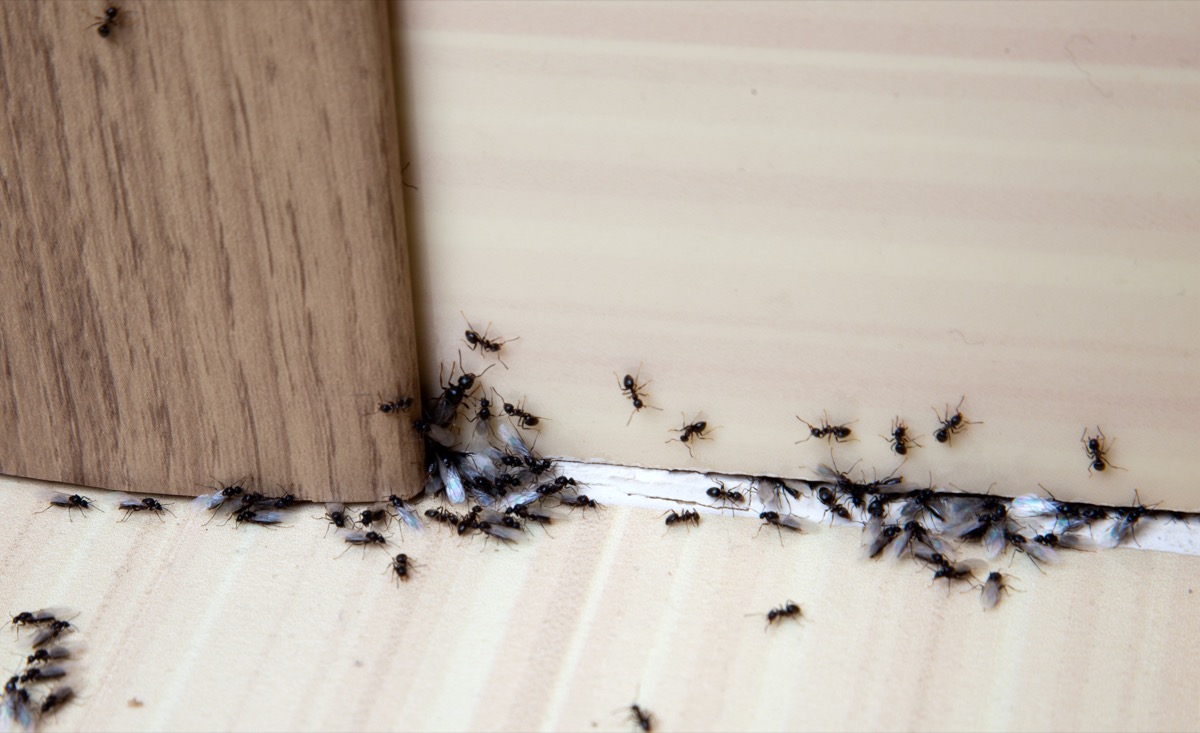
Just like you seek shelter during the colder months, so do pests—and in your home! "Windows are an easy access point so we recommend fixing any holes in window screens or molding," says Brad Leahy, owner of B.O.G. Pest Control. "Keep door sweeps and garages sealed shut. And if you notice the rubber on your door sweep has hardened and is a bit more brittle, it's time to make a change. Also make sure to check entry points for cables and power lines. All of these avenues are easy for spiders, cockroaches, and ants to make their way into."
16
Get your HVAC system serviced.
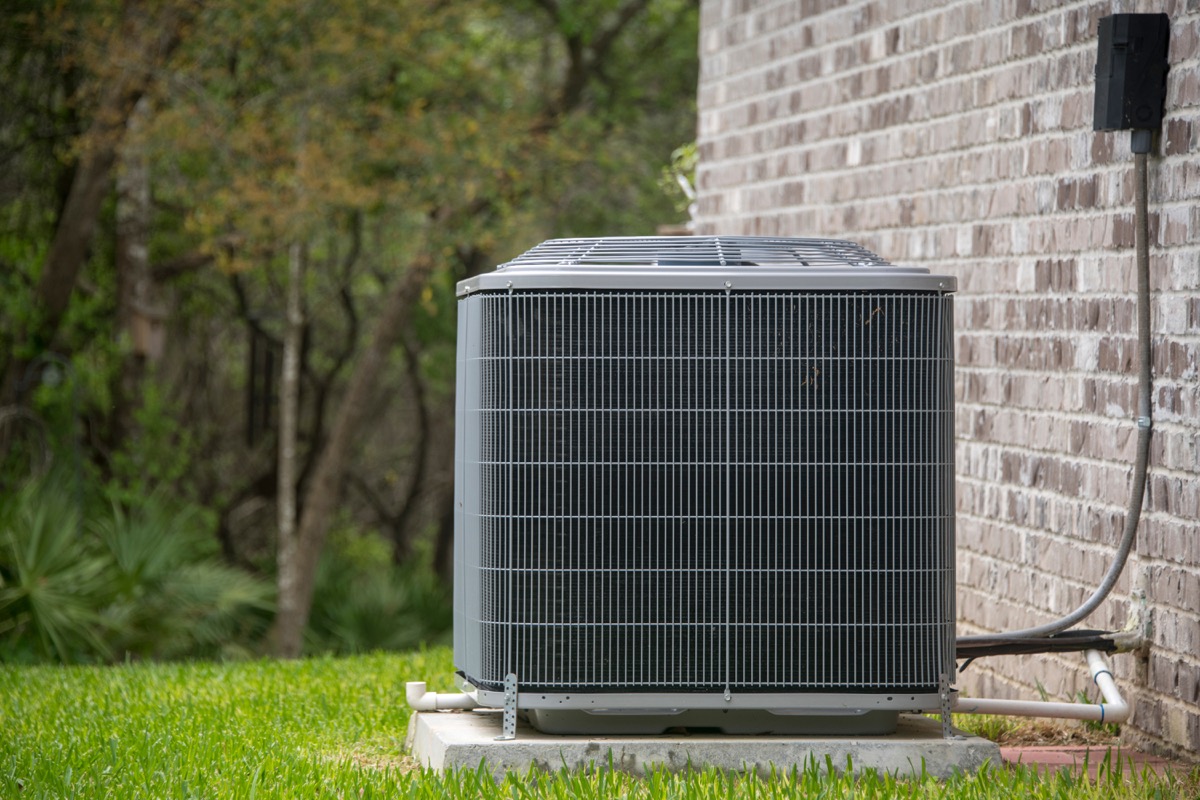
Let's fact it—you're going to be using your heating, venting, and air conditioning (HVAC) system a lot in the winter. If you don't get it serviced beforehand, you're only making more problems for yourself in the future.
"Every homeowner should have their HVAC system maintained at least twice a year, once before the hot weather approaches and once before it starts to get cold," says D'Aydra Allen, managing member of ECA DuctWorks. "During fall or winter maintenance your heating system should be cleaned (depending on the type of system you have it may just need to be dusted well), filters should be changed, and an HVAC technician should give your system a full inspection. If you avoid maintaining your system you are likely to pay a much higher labor cost for repairs and service because winter is usually slower for heating companies meaning they could hike up their prices."
17
Check your roof and gutters.
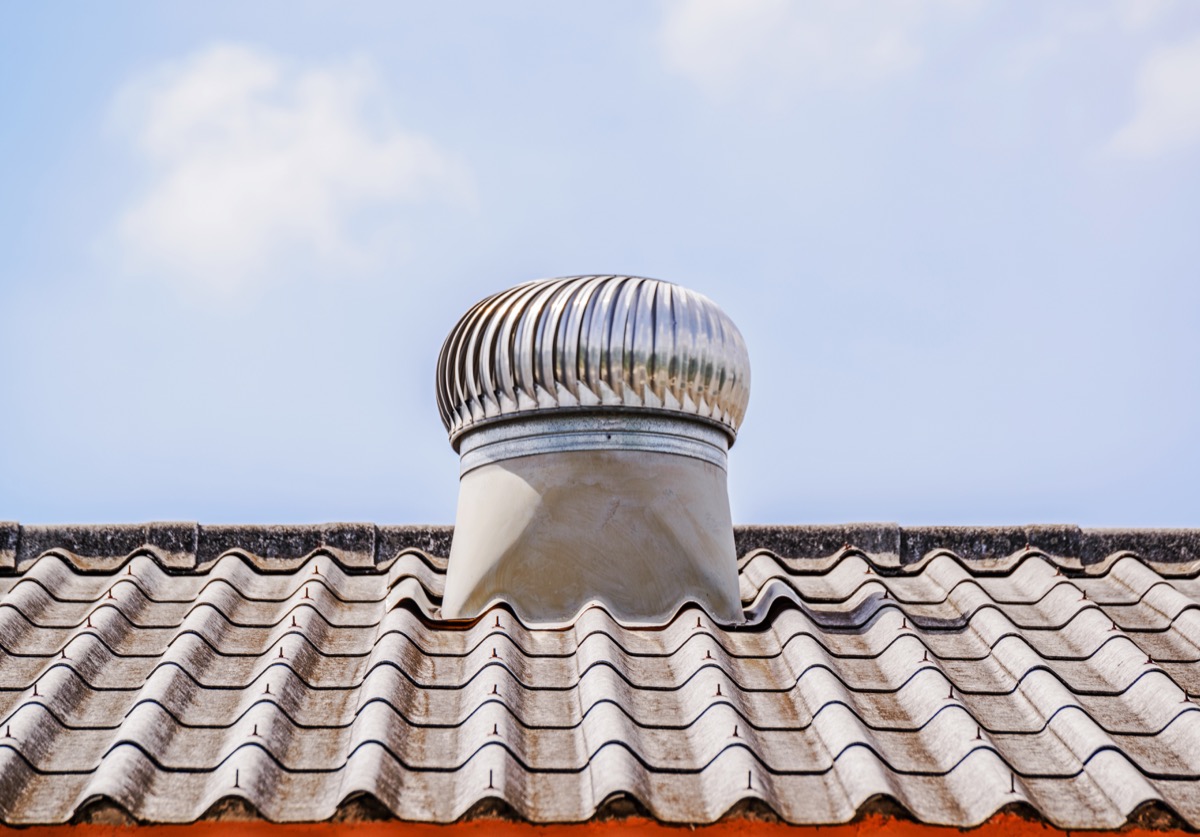
Emaunel Fisher, founder of Echo Valley Roofing, says all homeowners should make it a priority to check their roof and gutters before any winter weather hits.
"When it snows, the heavy weight and wetness can cause leaking into the home. Nobody wants to go through a winter without a safe roof," he says. "Inspecting for missing shingles, loose nails, or moss growth will help you estimate the current condition of your roof. This is an easy task for you to do, and some local companies from your community may even offer this service for free like we do."

